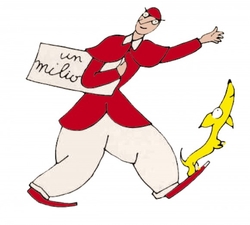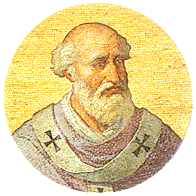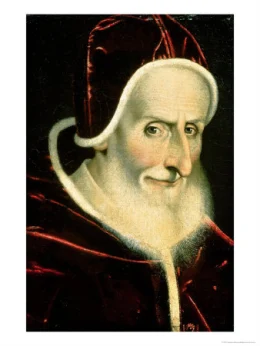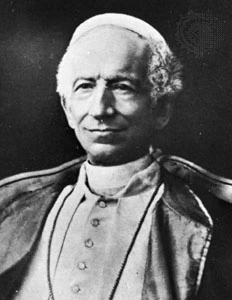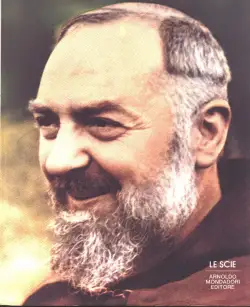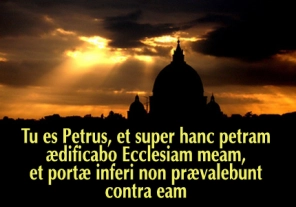Daily Archives: September 30, 2014
Non E’ Francesco? Of Pop Songs, Puns, And Popes.
There is a Sixties’ pop song in Italy, “Non e’ Francesca”, which every Italian knows and could sing. Including, probably, newborn babies, already dead people, and people with advanced Alzheimer’s Disease. The song is cruelly beautiful and its enduring popularity, now arrived at the fourth generation, is utterly deserved.
“You are mistaken”, says the singing voice (the late, but not forgotten, Lucio Battisti), “she whom you have seen is not Francesca”; and he does not want to believe that the wife he believes so true is, in fact, undoubtedly betraying him.
Why do I tell you this? Because I love my country, and the best of even its pop culture, and the wonderful sense of humanity we carry with us, shortcomings and all; and Lucio Battisti, and this particular song, is as much a part of Italy as the Colosseum, or the balcony of Palazzo Venezia.
But there is also another reason: this very song is the obvious “insider joke” (for Italians) of Antonio Socci’s book, of imminent publication, and pre-selling already very well on Amazon: “Non e’ Francesco”. His own newspaper has very recently made the surprise announcement.
In it, Socci apparently states that you are mistaken: he whom you think the Pope is not Francesco, but Benedetto.
I have already written about the Rapunzel-like fantasies of the proponents of such outlandish theories, and I will not repeat them here.
I only ask this: when Pope Benedict dies who is, pray, supposed to be the Pope? Francis is no Pope – they say – and his election invalid. If Francis should die or resign, the election of his successor would also be invalid, because effected through a number of Cardinals appointed by a non-Pope. Nor could any other rule, bar the Second Coming, offer an unquestioned, valid way of election, as every alternative method would cause division and controversy on an absolutely atrocious scale. Mind, here, that for Socci five votes instead of four in the same day suffice to invalid an election (how he can be sure of the five is another matter), so it follows that every other rule would be a far bigger deviation, and totally arbitrary, and I can’t see how a validly elected Pope can come out of it.
So: is not the consequence of Socci’s thinking a Sedevacantism in instalments? How would the proposer of the theory recover from it?
And as we are there: are we really sure the number of votes in past conclaves was always the prescribed one? Not one more, not one less? What is, therefore, if a Pope was elected in such a procedurally vitiated way? Shall he be a valid Pope merely because there was no Emeritus around? What about his own appointments? Was the successor validly elected? How so, particularly in case of a long pontificate of the “Francesco” of the day?
And let us think further: Francis dies or resigns. What then? Is Benedict Pope? How so? Will he say “I have caved in to blackmail, therefore I should be reinstated”? Seriously? Shall he be re-elected? By whom? By Cardinals appointed by non-Pope Francis?
Or, Francis dies, and Benedict says “stop dreaming, Jungs!” (He has, by the way, he has! Socci was listening to Battisti, so he missed that…). What then, skipper? Unless the Cardinals elect Benedict again and he says “I accept, but I was always Pope anyway” and proceeds to appoint as Cardinals the new ones (or deprive them of their red hat) I can’t see how this will work.
Socci has, no doubt, an answer to all this. We will have to wait for the book. I merely doubt it will be a credible one. But we shall see.
Up to then, and if you ask me, and remaining by the song pun, Socci should listen to the song again and again and repeat to himself its first three words: “ti stai sbagliando”.
You are mistaken.
M
A Real Visionary
Every now and then, the economic press tries to impress us with some “visionary” entrepreneur who had – or is having, or might have – some brilliant idea with vast consequences for us all.
I would, therefore, like to speak to you about a true Visionary; one of those men who changed the West, and brought it to successes not hoped for just a few years before.
It takes the mind of a visionary to see the spread abuse and criminal behaviour engendered by a clearly degenerated view of chivalry, and conceive the plan to use at least part of this vast potential for violence outside of Europe, where they would do good not only to Christianity, but to themselves.
It take courage to not only dream of, but profoundly believe in an operation whose costs and logistical difficulties made of it the biggest enterprise in many Centuries. It takes a great mind to understand that such an operation is not only feasible, but feasible in a comparatively very short amount of time. It takes, too, a skilled diplomatician, and a man of great personal prestige, to create a vast, multinational “coalition of the willing” and launch them to an enterprise that appeared no more than a beautiful dream only twenty years before. It takes a very smart mind to decipher the signs of the times and decide that yes, with God’s help the West has now become the better soldier, and the richer one. And it takes, of course, a man of great faith, because only who is aflame with Christ can transmit his fire into the heart of rich and poor, across many nations.
Pope Blessed Urban II did all this, and more than this. He changed the West for good, and gave the Christian West not only a stunning success for Christ, but one that changed the self-perception of the West forever: a self-assured continent able to bring war to the land of his arch-enemy and obtain sweeping, breathtaking success.
Of all the Crusades, the First was the best, the most successful, the most gloriously, stunningly, unbelievably beautiful (not counting, of course, Peter The Hermit and his bunch of violent bastards; who are rightly considered a separate campaign by serious historians). It was not only the triumph of a Christian army. It was the triumph of a daring, shamelessly self-confident, unashamedly Christian idea. It was an entire Continent that, after centuries of humiliation, rose to its feet, and found itself towering against the enemies of Christ: a scourge to infidels, not only defeated by humiliated in just a few years, in a world in which even international meetings had to planned one year or so in advance just to sort the distances, the security, the logistics, and the funding.
What a wonderful Pope, and what a great man Urban II was. Not for him the “who am I to judge”. Not for him the sissified waffle of “dialogue” and “understanding”. Not for him the rhetoric of peace at all cost, of peace before Christ, of peace for the sake of looking good.
No. Urban took Christianity under his wing, rallied it in a way never seen before, and set it toward an objective whose importance and meaning is difficult, today, for some even to imagine, but that was the Holy Grail of Christian thinking in those blessedly Chridtian times: to be able, again, to travel to Jerusalem, and to be in physical contact with the places that changed the world forever.
Urban achieved all this, and he actually achieved far more than this. The impression he made on the collective imaginary of the West is perfectly evident in the way the very word, “Crusade”, still polarises the minds and catches the imagination, more than 900 years after those events.
Do not bother me with whining complaints about massacres, and hate, and mistakes made. Every war has its share of them, at least every war not fought by armies of Angels. I choose, like every sound thinking man, to look at the whole picture, and not throw away – to stay nearer to our days – the war effort that rid us of Hitler because of Dresden, or Montecassino.
If you want a real visionary, one of those men who truly changed the West, look at this tenacious, faithful, really visionary man.
M
Cherchez Le Faggot
http://gloria.tv/embed/frame/media/JxbwgRjTog3/width/768/height/432
The always excellent Gloria.TV has another clue (if the embedding does not work, click the link) as to the astonishing events in Paraguay. A bishop accused another bishop of being homosexual.
Look: when there is such a scandal as a homosexual bishop I would not condone, but expect other bishops to condemn loudly the filth within the Church.
Not in the age of mercy, of course. in the age of mercy, a priest has to smell of filth. It makes him nearer to his (filthiest) sheep.
This one of the homosexual bishop can certainly have been used as an excuse. The Most Astonishing Hypocrite In Church History (TMAHICH) will make a scandalous faggot to the head of his papal household, but he will never tolerate an orthodox, Catholic bishop to criticise another homo.
This man is, very probably, beyond repair. We can only hope God rids us of him soon.
Bishop Livieres Plano is a Catholic bishop.
How un-pastoral!
Mundabor
The Marlboro Pope
In short, Francis promotes Jesus like the Marlboro Man promotes cigarettes. This means, for him, that the church according to Bergoglism isn’t an NGO. Oh no.






